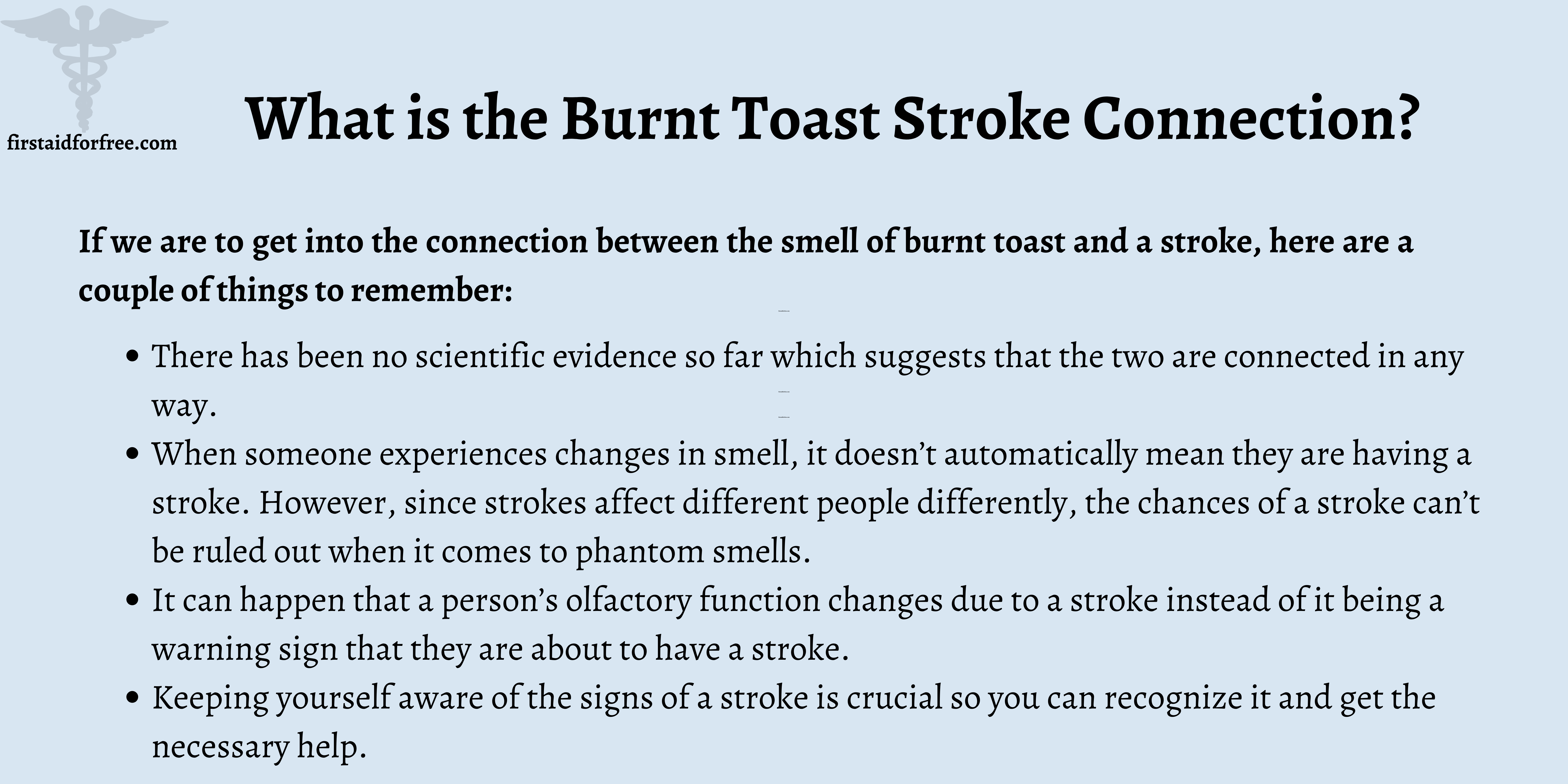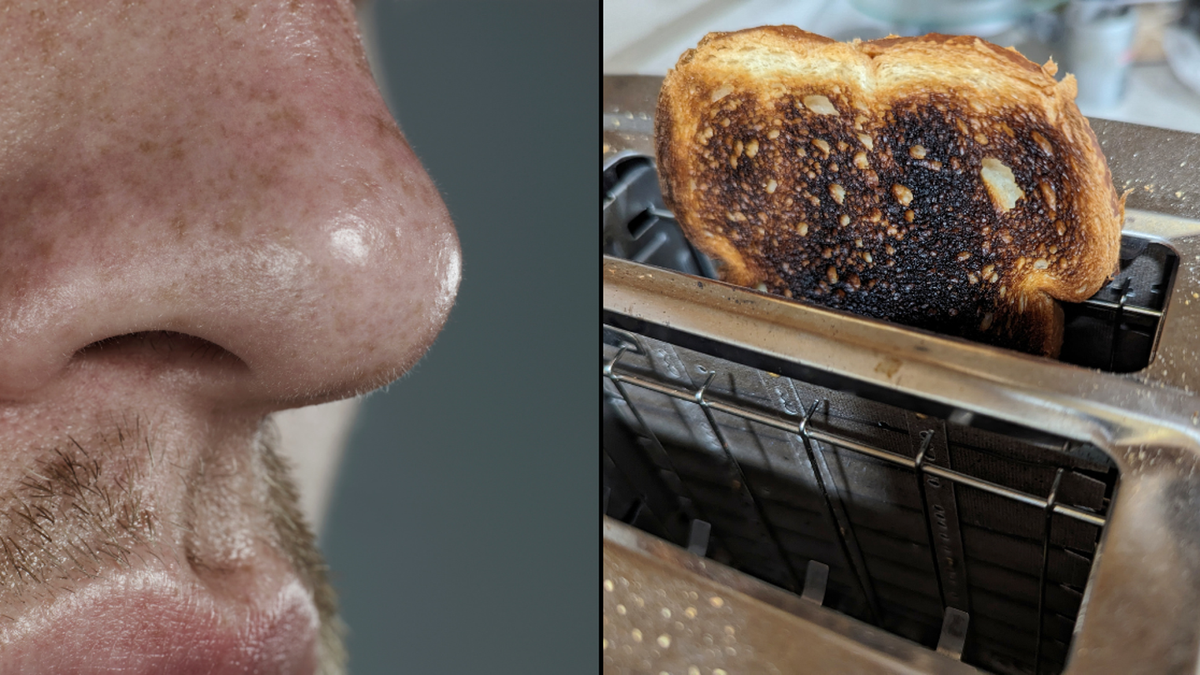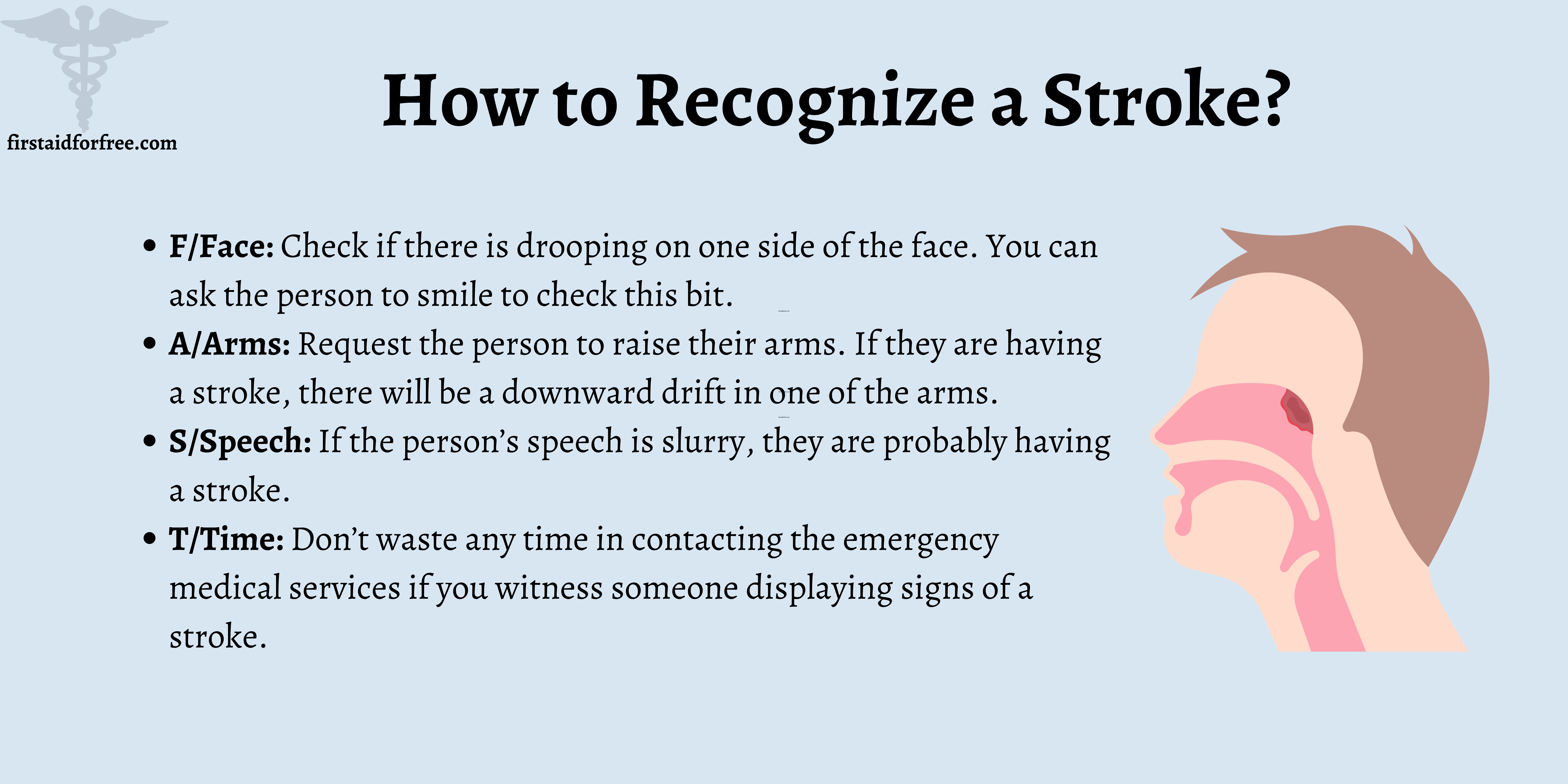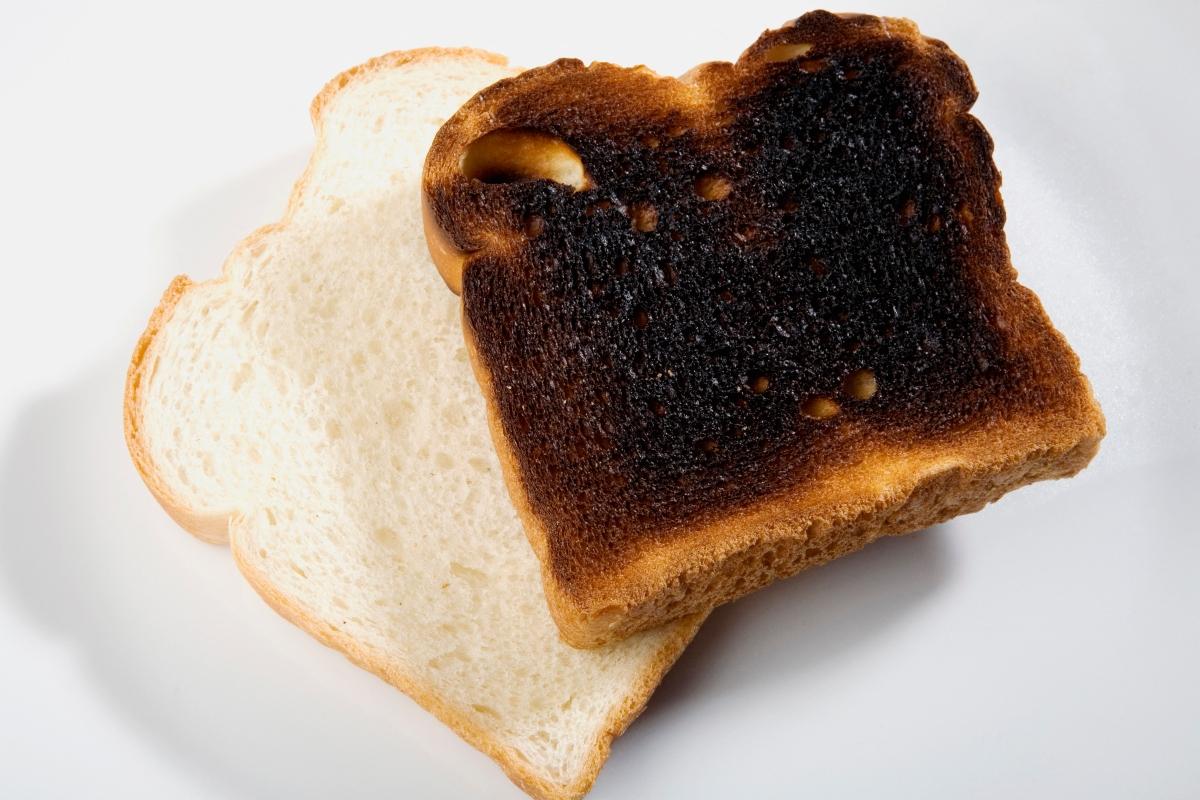What Does It Mean When You Smell Burnt Toast

That acrid, slightly sweet smell of burnt toast lingering in the air can be alarming, especially when there's no actual toast involved. While the immediate reaction might be to check the kitchen, if the scent persists and seems to be coming from your HVAC system, it's a sign that something is wrong and requires immediate attention. Ignoring this warning sign can lead to significant damage and potentially hazardous situations. This guide will walk you through the potential causes of a "burnt toast" smell emanating from your heating or cooling system, helping you understand the problem and what steps to take.
Understanding the "Burnt Toast" Smell: Potential Culprits in Your HVAC System
The distinctive odor we associate with burnt toast actually comes from a complex mixture of chemicals released when organic matter, like bread, undergoes combustion or overheating. When a similar smell arises from your HVAC system, it almost always indicates that something is overheating or burning. Here are the most common causes:
Electrical Component Overheating
This is perhaps the most frequent reason for the "burnt toast" smell. HVAC systems rely on numerous electrical components, including:
- Wiring: Damaged or frayed wiring can cause short circuits, leading to overheating and burning of the insulation around the wires. This burnt insulation emits a distinct odor similar to burnt toast.
- Capacitors: Capacitors store electrical energy and release it to start motors. When a capacitor fails, it can overheat and release a burning smell.
- Motors: The blower motor, condenser fan motor, and other motors within the system can overheat due to friction, lack of lubrication, or electrical issues. A burning smell from a motor is a serious sign of potential failure.
- Relays and Contactors: These electrical switches control the flow of electricity to different parts of the system. Over time, they can become worn or damaged, leading to arcing and overheating.
Dust and Debris Accumulation
Over time, dust, dirt, and debris can accumulate on the heating elements or within the blower motor of your furnace or heat pump. When the system kicks on, these particles can burn, producing a burnt smell. While usually not as alarming as electrical component issues, neglected dust buildup can eventually lead to more serious problems like reduced efficiency and overheating.
New System Burn-Off
If you've recently installed a new furnace or heat pump, a slight burning smell during the first few hours of operation is normal. This is due to the burning off of manufacturing oils and residues from the heating elements. The smell should dissipate quickly and is generally not a cause for concern. However, if the smell persists or becomes stronger, it's best to investigate further.
Gas Leak (Less Common, But Serious)
While not always a "burnt toast" smell, a gas leak can sometimes produce a similar odor, especially if the gas is not burning completely. This is a serious safety hazard and requires immediate attention. If you suspect a gas leak, evacuate the premises and call your gas company or local emergency services.
Troubleshooting the "Burnt Toast" Smell: A Step-by-Step Guide
If you detect a "burnt toast" smell coming from your HVAC system, follow these steps:
- Turn off the System: Immediately turn off your furnace, heat pump, or air conditioner at the thermostat and the circuit breaker to prevent further damage.
- Inspect the Area Around the Unit: Look for any visible signs of burning, smoke, or melted components around the HVAC unit.
- Check the Air Filter: A dirty air filter can restrict airflow and cause the system to overheat. Replace the filter with a new one.
- Smell the Air Vents: Try to pinpoint which vents are emitting the strongest smell. This can help you narrow down the source of the problem.
- Call a Qualified HVAC Technician: Unless you are highly experienced in HVAC repair, it's best to call a licensed and qualified technician to diagnose and repair the problem. Electrical and gas-related issues can be dangerous and should only be handled by professionals.
Preventative Maintenance: Keeping the "Burnt Toast" Smell Away
Regular preventative maintenance is key to preventing many HVAC problems, including those that can cause a "burnt toast" smell. Consider these maintenance practices:
- Regular Air Filter Replacement: Change your air filter every 1-3 months, depending on the type of filter and the amount of dust in your home.
- Professional HVAC Tune-Ups: Schedule annual tune-ups with a qualified HVAC technician. These tune-ups typically include cleaning, lubrication, and inspection of all system components.
- Clear Debris Around Outdoor Units: Keep the area around your outdoor condenser unit clear of leaves, grass clippings, and other debris to ensure proper airflow.
- Inspect and Clean Air Ducts: Have your air ducts inspected and cleaned periodically to remove dust and debris buildup.
HVAC Brands and Models: Features and Ratings
Choosing the right HVAC system can contribute to long-term reliability and reduce the likelihood of issues like overheating. When selecting a new system, consider the following:
Key Performance Metrics
- AFUE (Annual Fuel Utilization Efficiency): Measures the heating efficiency of furnaces. Higher AFUE ratings indicate greater energy efficiency. Look for furnaces with AFUE ratings of 90% or higher.
- SEER (Seasonal Energy Efficiency Ratio): Measures the cooling efficiency of air conditioners and heat pumps. Higher SEER ratings indicate greater energy efficiency. Aim for SEER ratings of 15 or higher.
- HSPF (Heating Seasonal Performance Factor): Measures the heating efficiency of heat pumps. Higher HSPF ratings indicate greater energy efficiency. Look for HSPF ratings of 8.2 or higher.
Popular Brands and Models
Here's a brief overview of some popular HVAC brands and models known for their reliability and performance:
- Carrier: Known for innovation and high-efficiency models. Consider the Carrier Infinity series for top-of-the-line performance.
- Trane: Offers a wide range of reliable and durable systems. The Trane XV series is a popular choice for its efficiency and quiet operation.
- American Standard: Shares manufacturing with Trane and offers similar quality and performance.
- Lennox: Known for its energy-efficient and technologically advanced systems. The Lennox Signature Collection is a premium option.
- Goodman: Provides affordable and reliable options, making it a good choice for budget-conscious buyers.
Warranty Considerations
A comprehensive warranty can provide peace of mind and protect you from unexpected repair costs. Look for systems with at least a 10-year warranty on the compressor and other major components. Be sure to read the warranty terms and conditions carefully to understand what is covered and what is not.
Cost Factors: Investing in Quality and Efficiency
The cost of a new HVAC system can vary depending on the size of your home, the type of system you choose, and the installation complexity. While it may be tempting to opt for the cheapest option, investing in a higher-quality, energy-efficient system can save you money in the long run through lower energy bills and reduced repair costs.
Consult with several HVAC contractors to get multiple quotes and compare features, warranties, and installation costs. Don't be afraid to ask questions and get a clear understanding of the proposed system and its potential benefits.
Conclusion: Prioritizing Safety and Maintenance
The "burnt toast" smell coming from your HVAC system is a warning sign that should never be ignored. By understanding the potential causes, taking prompt action, and prioritizing preventative maintenance, you can protect your home and family from potential hazards and ensure the long-term efficiency and reliability of your heating and cooling system. Remember, when in doubt, always consult with a qualified HVAC professional.










